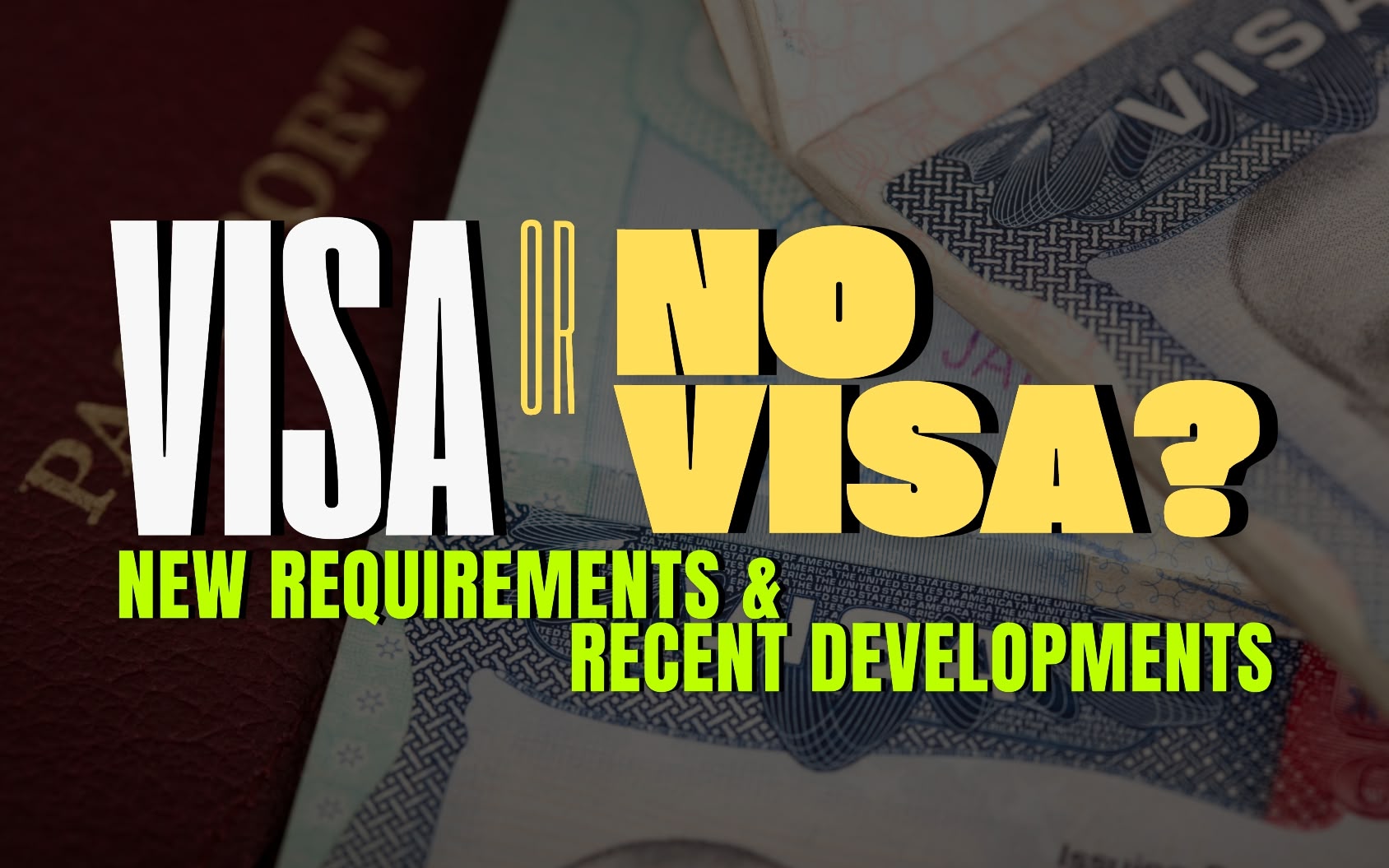If you’re planning a long-term stay in Italy, you may wonder whether you need a visa, particularly if you’re from a country that’s part of the visa-exempt list for short stays. Until recently, nationals of visa-exempt countries could enter Italy (and the Schengen area), remain for 90 days, and then request a long-term residency permit after arrival. But is that still the case?
Let’s explore this question through a practical case study and clear guidance to help you navigate the complexities.
Updated: January 2025
Case Study: Traveling to Italy as the Spouse of an Italian Citizen
You are married to an Italian citizen who holds an Italian passport. Together, you plan to travel to Italy next year and stay for six months. What are your options?
Key Considerations:
If you are from a country where citizens always need a visa to enter and stay in Italy—even for short visits—you already know that a visa will be required for longer stays. But what about travelers from visa-exempt countries?
Let’s break this down:
1. Entry Without a Visa (Currently):
If you’re a family member of an Italian citizen—a spouse, child under 21, parent, grandparent, or dependent grandchild—you are entitled to enter Italy without a visa. Italian law grants the right to stay and apply for a residency permit, known as the “FAMIT,” which is specifically for non-EU family members of EU citizens.
2. Recent Developments:
While the law has not officially changed, some Italian consulates, such as the one in San Francisco, have started advising family members to apply for a family visa before entering Italy. However, this is not a mandatory requirement under current legislation. The Italian government has published information to recommend family of Italian citizens and of citizens from Member states of the European Union to apply for a national visa before moving to Italy for more than 90 days.
3. Residency Permit Application:
If you apply for the FAMIT permit within 90 days of entry, you’re entitled to remain in Italy beyond the usual 90-day limit, as per Article 23 of Legislative Decree 30/2007. This is your legal right.
Future Registration Requirement for Visa-Exempt Travelers
From this year, visa-exempt travelers to Italy and the Schengen area are required to register online before their trip. This new measure is part of the upcoming European Travel Information and Authorisation System (ETIAS). While this doesn’t change your right to enter without a visa, it’s an important step to keep in mind.
Benefits of Obtaining a Family Visa
Even though a visa isn’t legally required for family members of Italian citizens, obtaining one can simplify your travel experience. Here’s why:
1. Flexibility for Re-Entry:
If you need to leave Italy while waiting for your residency permit, having a national visa (especially a multi-entry type) allows you to re-enter Italy without issues. Other Schengen countries may not recognize your permit application receipt as valid proof of your status.
2. Handling Delays:
Residency permit applications can take much longer than the 30 days stipulated by law. Some offices process permits in up to 10 months. A visa ensures you’re covered during such delays, at least for multiple visits to Italy or Schengen area up to max 90 days in total. Find out here how the Schengen rule works exactly.
Practical Tips for Your Long-Term Stay
Seek Written Clarification: Always ask your local Italian Consulate for visa guidance in writing (via email or PEC). Just ask if you need a visa to stay in Italy longer than 90 days with your Italian spouse or family. Their written reply provides you with a record for future reference. Even if they don’t reply, obtaining a receipt of your inquiry is also valuable, just in case.
Understand Fee Exemptions: Family members of Italian citizens are exempt from processing fees for both visas and residency permits, as per Article 23 of Legislative Decree 30/2007.
Which Family Members Are Eligible?
- Spouses and partners
- Children of the couple (until 21 years of age)
- Children of the Italian citizen or of the non-Italian spouse or partner (until 21 years of age)
- Children above 21 years of age, if financially dependent on the Italian citizen
- Parents, if financially dependent on the Italian citizen
- Grandchildren and grandparents of the Italian citizen
- The parents of the Italian citizen’s spouse (or same-sex registered partner)
- The sisters or brothers of the Italian citizen
NOTE: There are 2 main options for residency permits for family members, sepending on their needs and tie to the Italian citizen. You are welcome to read more about it in my article Unlocking Italy: Residency Options for Families of Italian Nationals.
Why Italy’s Bureaucracy Feels Complex
Italy’s administrative system is rooted in the traditions of a centralized, hierarchical structure, reminiscent of the Napoleonic era. While modern Italy is far from a dictatorship, navigating its bureaucracy often requires patience and persistence. This structure can sometimes make citizens’ rights feel more like “expectations” than guarantees.
By planning ahead, documenting your steps, and seeking professional advice where needed, you can enjoy your extended stay in Italy with confidence.
Do You Need Any Help? I can help you with..
My Email Consultation: detailed, practical, and law-backed responses to your questions & problems + any templates or forms you may need
OR a more in-depth solution with
MY Private Consultation: personalized guidance, Zoom call, document review, customized action plan, and tailored follow-up to achieve your goals
Apply for citizenship now
If you’re considering to apply for citizenship by lineage, I recommend doing it FAST and correctly. You’re welcome to use my Ultimate Checklist, complete with PRO Tips and the Exclusive Template to get the Italian records quickly.

